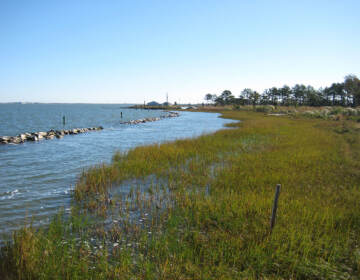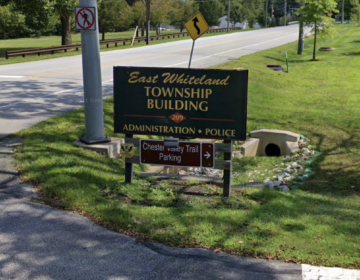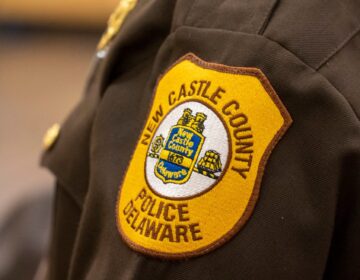Newark residents could win a year’s worth of free water if they check for lead pipes
Lead can seep into drinking water through service lines that connect to buildings and homes.
Listen 2:11
Tim Filasky, director of Public Works & Water Resources in Newark, Del. (left) with Del. Water Operations Superintendent Mark Neimeister (right) are part of an effort to get city residents motivated to investigate and share if water line pipes in their home are made of copper or lead. (Kimberly Paynter/WHYY)
A magnet, a screwdriver, and a penny — that’s all a homeowner needs to find out if their water pipes are made of lead, a toxin that can harm mental and physical development in small children.
Municipalities across the U.S. must create a public inventory of lead water pipes by October 2024, and the city of Newark is asking residents for their help in exchange for a chance to win free water for a year up to $1,000.
Lead can seep into drinking water through service lines that connect to buildings and homes. The potent neurotoxin can damage brain development in children, so replacing these old pipes is crucial.
“[The Environmental Protection Agency] is looking for a find-and-replace type of program, and the first step of compliance is to identify all the [lead] water services within the system,” said Mark Neimeister, water operations superintendent for the city’s public works department.
“For a city the size of Newark, having roughly 10,000 customers, that could be quite a project for the city itself.”
The EPA requirement comes years after lead contamination in Flint, Mich. resulted in elevated lead levels in children’s blood. The Biden administration has set aside $15 million dollars in funding from the Bipartisan Infrastructure Law in an effort to replace all lead pipes in the U.S. within the next decade.
The EPA estimates there are about 9 million of these lines across the country, especially in older cities. Finding them is an immense undertaking, because many cities don’t even know where they are — or how many exist. Finding and replacing them also can be an economic burden on cities.
Asking residents to determine whether they have lead pipes can relieve some of that burden, said Tim Filasky, director of Newark’s public works department. He said offering a prize of free water is much less costly for the city than hiring workers to find lead material in homes.
“If we didn’t get this information from the homeowners, we would spend $20, $30, $40,000 by sending our crews into your home, or sending our crews out to dig holes in the yard, things like that, to verify these things,” he said.
How to find out if your house has lead pipes

To help the city of Newark determine pipe material, residents must first locate their water meter.
The next step is attempting to stick a magnet to the pipe. If the magnet sticks, the pipe is likely made of galvanized steel. These old, iron pipes can accumulate lead deposits over time and contaminate drinking water if a home previously used lead pipes.
If the magnet does not stick, the pipe could be copper, or lead. Residents can scrape the pipe with a screwdriver to discover the type of piping material. If the pipe matches the color of a penny, the pipe is made of copper, which won’t leach contaminants into the water. If the pipe is a shiny silver-gray, it could be made of lead.
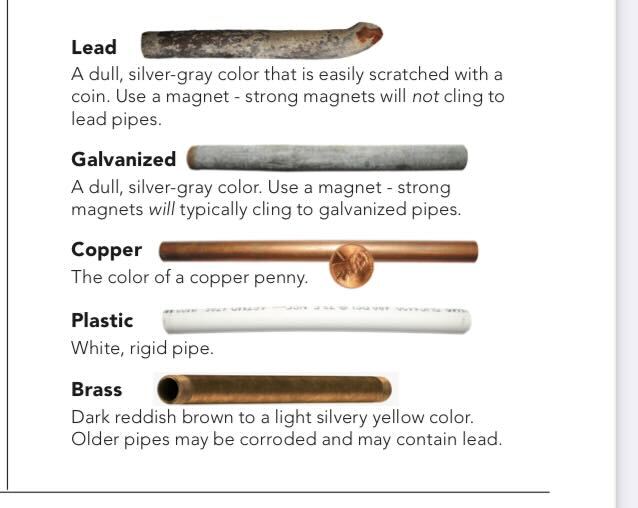
Participants of Newark’s survey must submit photos of their pipes, along with a form, to the city.
The city will enter residents into a raffle every three months through June 2024. The winners won’t have to pay their water bills up to $1,000 for a year.
The city of Newark will pay for the replacement of lead service lines connected to buildings and homes.
Homeowners must hire a plumber to replace internal plumbing made of lead, however. Welding solder, household plumbing fixtures, and pipe fittings made before 1986 may contain the heavy metal.
The EPA recommends homeowners with lead pipes to purchase filters certified to remove lead, to only use cold water for drinking and cooking, and to run the water before drinking.
Filasky said he believes at least 60% to 70% of the city’s service lines are lead-free, because many homes were built after these pipes were banned.
In addition to checking private residences, the city also is tasked with determining whether public buildings have lead pipes, including schools. More than 100 public and charter schools across Delaware were reported to have lead in their water this year, likely due to older water fixtures.
Water operations superintendent Neimeister said he hopes residents who live in homes built in the early 20th century will participate in the city’s survey. However, knowing where modern copper pipes exist also helps the city get a better grasp on the situation, he said.
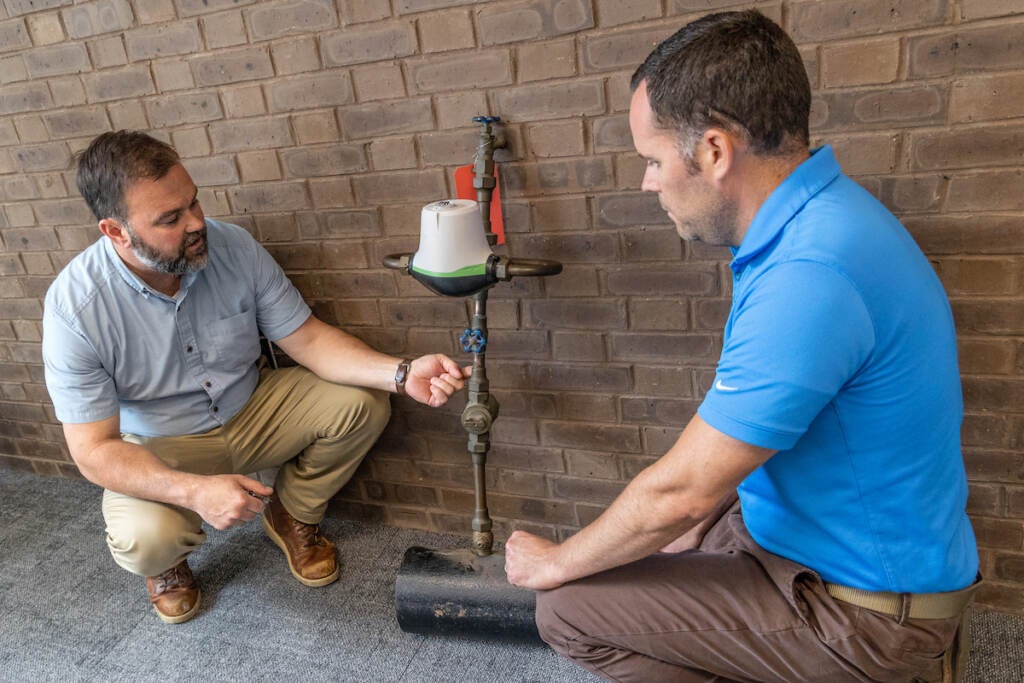
So far, more than 100 Newark residents have signed up. None have found lead pipes, which comes as a relief, Neimester said.
“They feel a little assured knowing that they have a copper service,” he said.
Newark homeowners, and people who rent single-family and townhomes, can participate in the survey until June 2024.

Get daily updates from WHYY News!
WHYY is your source for fact-based, in-depth journalism and information. As a nonprofit organization, we rely on financial support from readers like you. Please give today.



